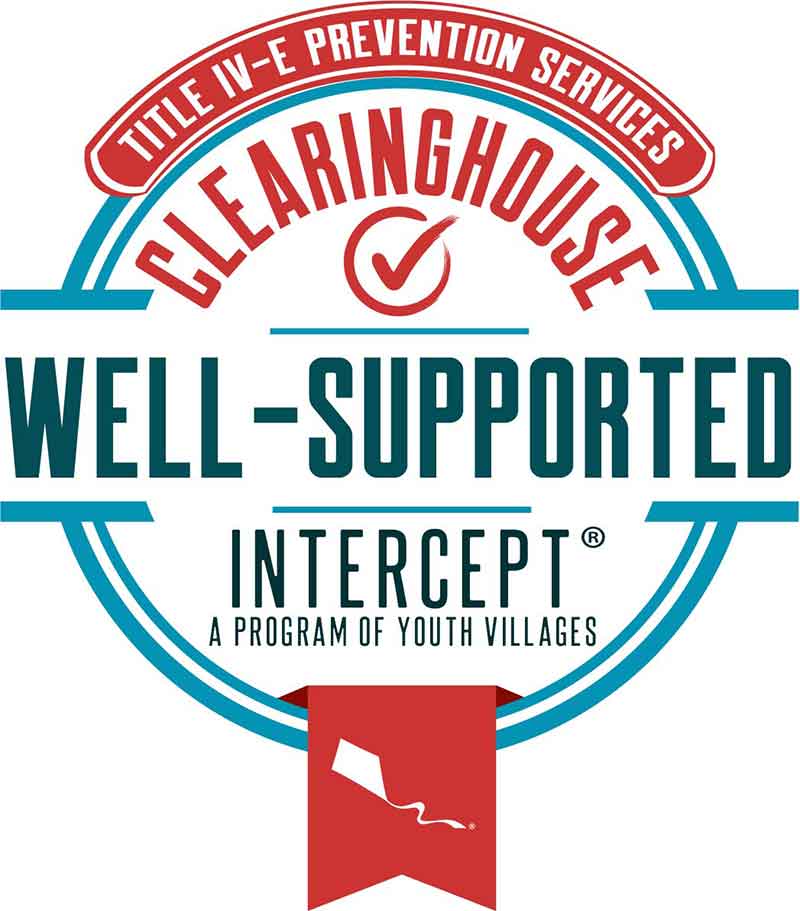Youth Villages Intercept earns highest rating, allowing us to help more children and families
The Youth Villages Intercept program model recently achieved an important milestone earning the “well-supported” rating from the Title IV-E Prevention Services Clearinghouse. The rating allows states to receive federal funding to pay for our effective in-home program that strengthens and restores families and reduces the need for foster care or out-of-home care. Intercept is one of only 12 models in the country to receive this highest rating.
Every year, more than four million families across the country find themselves at a difficult crisis point that could cause a child to be placed in foster care or an out-of-home treatment program. Family intervention specialists intercept struggling families, helping them find their way to well-being with behavioral and emotional health interventions for the child and systemic support for every member of the family. Last year, Youth Villages helped more than 10,000 families in 13 states using Intercept.
Intercept is a comprehensive, systemic approach that lightens the load of family stress and instability for parents or caregivers, stepping in to help children with emotional and behavioral problems, as well as every member of the family. Specialists help children and families learn ways to address mental health needs, assist with schools and teachers, promote the family’s financial and housing stability, work in the neighborhood and with children’s peers, and provide 24-hour, in-person crisis support to families.
Youth Villages began intensive in-home services in 1995, through initial funding from the Plough Foundation in Memphis, Tennessee. The Intercept program has become an integral part of positive change in child welfare systems in the states where it serves.
The rating is based on two studies led by Dr. Fred Wulczyn’s team from the Center for State Child Welfare Data at Chapin Hall at The University of Chicago. The studies found that Intercept had positive impacts on preventing placement in foster care and helping children achieve permanency quickly if out-of-home care is necessary.
Rigorous Evaluations of Intercept
Conducted by Center for State Child Welfare Data at Chapin Hall
- Placement: Intercept reduced the chances of out-of-home placement by 53% following the first maltreatment investigation. The effect of Intercept was sustained at six and 12 months after Intercept services ended.
- Permanency: Compared to a matched comparison group, after controlling for how long they were in care, the odds of achieving permanency were approximately 24% higher for the Intercept group.
- Placement – A Second Look: Examining a more recent sample of youth, Intercept reduced the chances of out-of-home placement by 37% following a maltreatment investigation. Note that the observation window was shorter for this study, which may partially account for the difference in findings.
Learn more about the rigorous evaluations of Intercept.
About The Clearinghouse
The Clearinghouse was established by the Administration for Children and Families within the U.S. Department of Health and Human Services to conduct an objective and transparent review of research on programs and services intended to provide enhanced support to children and families and prevent foster care placements. It determines what services can be funded under the Family First Prevention Services Act.

